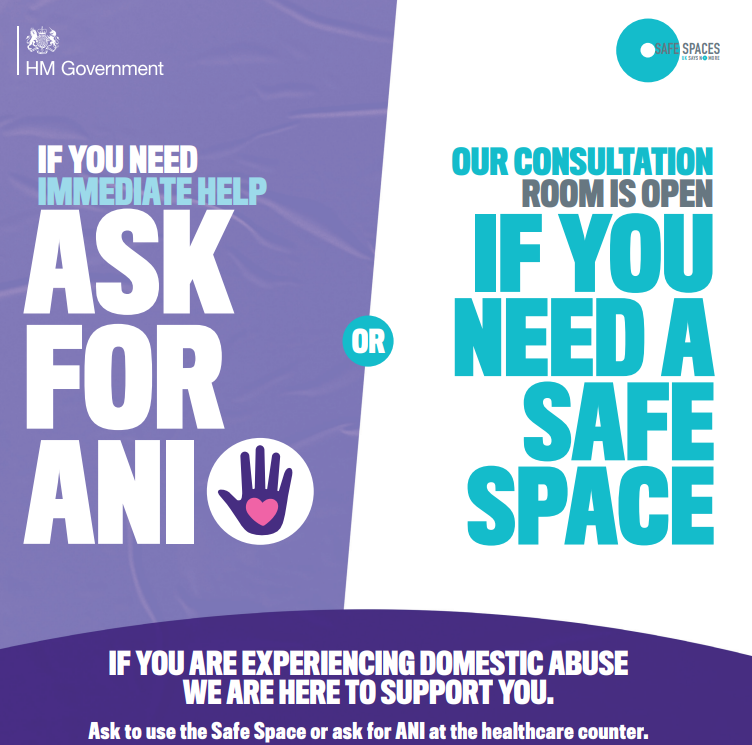
More than 40,000 calls and contacts were made to the National Domestic Abuse Helpline during the first three months of lockdown in 2020.
Ten months on and families are continuing to spend an increased amount of time at home, whilst managing additional caring responsibilities and increased financial demands. These added pressures within the home could lead to changes in mood and behaviours. This can accelerate the risk of abuse.
For those already living in an abusive household, isolation can make pre-existing abusive behaviours worse and it narrows the window of opportunity for those seeking help and support.
During the first national lockdown in March 2020, we produced guidance about the support available if you, a friend or colleague were at risk of domestic abuse.
Since then, the increased awareness about domestic abuse has prompted a focus on how people can access support. We discuss some new initiatives below.
Finding a Safe Space
‘UK SAYS NO MORE’ is a national campaign working to raise awareness of domestic abuse across the UK. They are working with Boots UK, Superdrug, Morrisons and independent pharmacies across the UK to provide Safe Spaces in their consultation rooms for people experiencing domestic abuse.
They have a search tool on their website to allow people to find a local Safe Space. Alternatively, anyone can walk into their local pharmacy and ask at the healthcare counter to use their Safe Space. They will be shown to the consultation room with specialist domestic abuse support information, and a phone, to allow them to access services safely.
Boots Pharmacies and ‘Ask for ANI’
Alongside the Safe Spaces scheme, the government have also teamed up with Boots to launch a domestic abuse ‘Ask for ANI’ codeword scheme. ‘ANI’ stands for Action Needed Immediately.
From Thursday 14 January 2021, all 2,300 UK Boots pharmacies will be discreetly displaying the ‘Ask for ANI’ poster to encourage people at risk of domestic abuse to seek support.
By ‘asking for ANI’, a trained pharmacy worker will offer a private space where they can understand if the person needs to speak to the police or would like help to access support services such as a national or local domestic abuse helplines.
If you know someone who is at risk of domestic abuse, inform them of the Safe Spaces available to them during lockdown.
If you work in a Pharmacy, you can access the ‘Ask for ANI’ training materials here.
It is important to recognise that people may be concerned about accessing support from their local pharmacy. You can support by:
- Reassuring the person you are supporting that there is help available. They will be listened to if they are concerned about their safety and wellbeing. Reinforce the message that you can leave your home to access a Safe Space.
- Informing people that other forms of support continue to be available, even during the lockdown. For example, you can speak to your doctor, health visitor or midwife about domestic abuse. Men can call the Men’s Advice Line on 0808 8010 327. Women can call The Freephone National Domestic Abuse Helpline, run by Refuge on 0808 2000 247.
- Signposting to The NHS directory of support for people at risk of domestic abuse including support for men, women, LGBT+ and people at risk of forced marriage.
How can Employers and Managers Support?
Employers have been urged by the Business Minister Paul Scully to learn more about how to spot the signs of domestic abuse.
He explains that during the lockdown period, managers and colleagues are often the only other people outside the home who victims talk to each day. Therefore, they are essential in spotting the signs of abuse.
Even if you are working remotely, checking in on employees through regular one to ones, or holding team coffee mornings can be important in noticing signs that something may not be okay at home.
It can be difficult to start a conversation about issues such as abuse in the workplace. Encouraging staff to learn how spot the signs of abuse and having policies in place for how your organisation can offer support can help to prompt such discussions.
Download our ‘Safeguarding Adults Policy and Procedures’ templates to support you in writing a safeguarding adults policy for your organisation. Having a safeguarding policy is key to emphasising the message that everyone in your organisation has a role in safeguarding and provides valuable information about how to raise concerns.
In addition, you can:
- Read the guidance from Victim Support about spotting the signs of domestic abuse.
- Take a look at our advice to learn more about your role in safeguarding.
- Share information about the Safe Spaces scheme within your organisation to start the conversation about safeguarding and domestic abuse.
Safeguarding is Everyone’s Responsibility
Over the course of the pandemic there has been an increased awareness of domestic abuse. We welcome initiatives such as the Safe Spaces campaign, Ask for ANI and encourage organisations to have conversations with employees if they are worried that they could be at risk of harm or abuse.
We also recognise that despite these new initiatives it can still be difficult to find the confidence for victims of abuse to access support services.
We all have a role in safeguarding, particularly at this time. You can show your support by learning how to spot the signs of abuse and neglect and who to contact if you have a concern.
You can also contact us to discuss bespoke safeguarding training for your organisation or explore our online training courses.
